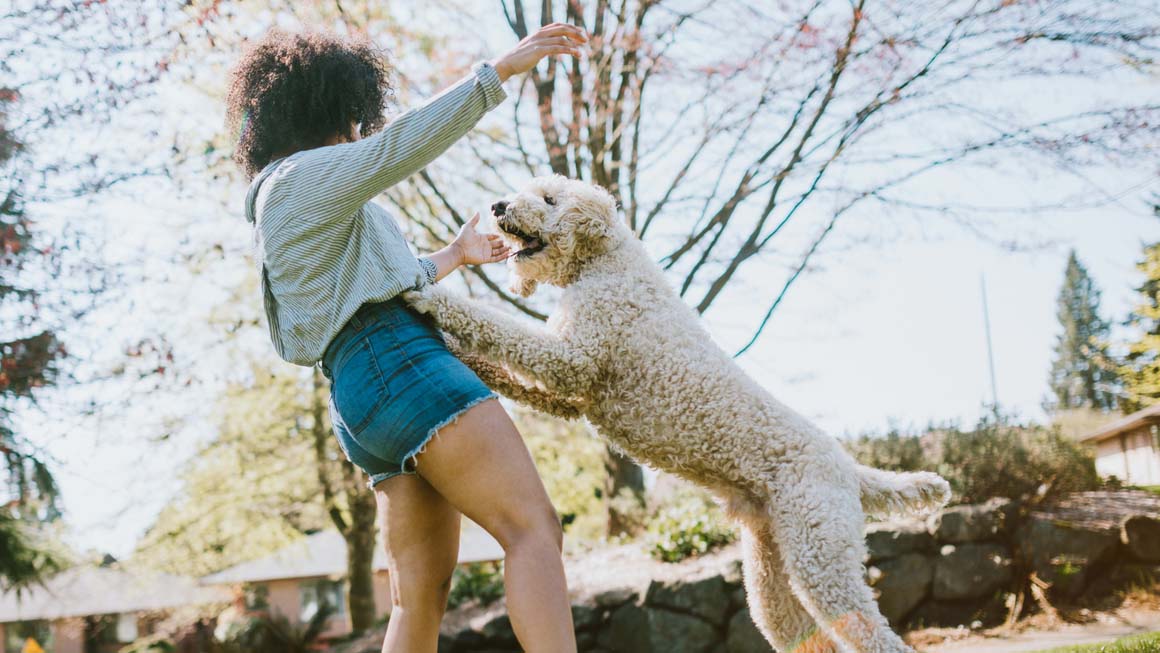Few would argue with the idea that play is important for children. Indeed, there’s plenty of research indicating that children’s play encourages the development of new neural pathways involved in social learning and emotional processing. But what about adults? Are we so highly developed that we have no need for play?
Ask an adult the reason behind his or her play, and you’ll likely get an answer such as, “It’s fun,” “It relieves stress,” or simply, “It feels good.” But there’s more to it than that, says Lenore Terr, MD, author of Beyond Love and Work: Why Adults Need to Play. “When we play, we sense no limitations,” she explains. “In fact, when we are playing, we are usually unaware of ourselves. Self-observation goes out the window. We forget all those past lessons of life, forget our potential foolishness, forget ourselves. We immerse ourselves in the act of play. And we become free.”
There are many obvious reasons why we don’t play enough. With bills to pay, errands to run and kids to feed, we think we simply don’t have the time. But there are also not-so-obvious themes at work: We worry about losing control, looking foolish or failing. Being a grown-up is about “acting your age,” living in “the real world” and being “taken seriously.”
“When we play, we sense no limitations.”
The first step toward becoming more playful is recognizing the value of play in our adult lives. Not only does all work and no play make Jack a dull boy, it also leaves him more likely to become depressed, unproductive and uncreative — and more prone to illness.
“One reason why play is such an ideal state of mind for creativity and learning is because the mind is focused on means,” writes Boston College research psychologist Peter Gray, PhD, on his Psychology Today blog. “Since the ends are understood as secondary, fear of failure is absent and players feel free to incorporate new sources of information and to experiment with new ways of doing things.”
Laughter has been shown to increase our pain threshold, reduce blood-sugar levels, boost glucose tolerance and increase blood flow to vital organs. It occurs 30 times more often in social situations (play is most often a social undertaking), according to a 2004 study by University of Maryland neuroscientist Robert Provine, PhD. (See “The Surprising Benefits of Laughter — and Tips to Find More of It” to learn more.)
Regularly engaging in play renews and energizes us. It inspires us to be more creative in our home lives — and work lives. “We may think of play as optional, a casual activity,” Diane Ackerman writes in Deep Play. “But play is fundamental to evolution. Without play, humans and other animals would perish.”
Getting Into Goofing Off
As strange as it sounds, relearning how to play can be hard work. It requires suspending judgment, using your imagination in ways you might not have for years, and letting yourself be guided by what feels good rather than by what you’re “supposed” to be doing.
Tobin Quereau and Tom Zimmermann, authors of The New Game Plan for Recovery, suggest starting small. “If we can just set our sights on creating five minutes of pleasure each day, we may find ourselves much more likely to follow through than if our expectations consistently exceed our abilities,” they write. Read the comics or your horoscope before the front page of the newspaper. Pet your dog for a full five minutes. Enjoy the view from your front porch.
After you’ve worked five minutes of play into your day, increase it to five minutes of enjoyment several times a day. Make it a priority to allow play into more of your daily routine. You might make pancakes in the shape of Mickey Mouse for breakfast, listen to comedy MP3s on the way to work, or join in a karaoke singalong at the local tavern. Try not to let play get crowded out by all of the other “important” things. “We must look at our commitments to play as lifelong promises to ourselves,” says Terr.
And play by your own rules. Don’t compare yourself with others or force yourself to do what they are doing. “Only you know what feels good to you,” Quereau and Zimmermann note. “Honor that feeling.”
Take Lessons From a Master
Naturally, treating play like some major to-do item can completely defeat the purpose of your playtime. That said, there is one great way to gently pressure yourself into action: Spend time with a child.
Let yourself “sink” to their level — literally. Get down on the floor and view the world from a new perspective. Make silly sounds and funny faces. If anything gives us permission to engage in free-form play, it is the company of children.
Angela Hill, 35, the president of a graphic design and branding agency in San Diego, Calif., cranks up the music on weekend mornings and dances around with her two sons, ages 5 and 6. “We try out crazy dance moves that we’ve invented, we pretend to be a rock band and play air instruments, or we come up with silly moves to make each other laugh,” she says. “We always end up laughing so hard we have to sit down.”
Allan Bacon takes his three daughters (11, 11, and 14) out exploring every Saturday morning. “We might go to the library, a bookstore or a new part of town,” says the 43-year-old Charlotte, N.C., writer. “We’ve stumbled upon parades and explored downtown office buildings. It’s become an inviolable tradition with me and my daughters.”
Although play doesn’t have to be expensive, you might also try setting aside a little “mad money” to devote purely to amusements. Whether your version of play is a crafts-supply shop, a seed catalog or a trip to the museum, give yourself permission to fully explore and enjoy the experience.
Lauren Traub Teton, for example, saves her money for lift tickets and gear for her favorite kind of play: snowboarding. The Pound Ridge, N.Y., resident picked up the activity a decade ago and loves it. “I like the smooth, dancelike motion of snowboarding, the speed, and the people,” she says.
If you don’t know what turns your crank, keep trying new things — and be persistent. Though Traub Teton, 52, tried other winter sports first, including cross-country skiing, it wasn’t until she found snowboarding that she really connected with an activity.
Once you’ve had some success building a little more playtime into your life, notice the pleasure it brings you and start seizing opportunities to expand on it (see “Give Yourself a Break” for inspiration and ideas).
And don’t be surprised if you start feeling more like your younger self. Ackerman believes the very nature of play
is “organic to who we are and what we are, a process as instinctive as breathing.”
OK, lesson’s over. Time to go out and play.
You Are What You Play
Marie Trudeau, 56
Then: “My grandfather was a printer and gave me leftover paper that I drew on all the time. I made my own Christmas and birthday cards from that paper year after year.”
Now: Every Friday afternoon, Trudeau, an insurance agent, heads to the local public school to teach art to kindergartners and first graders. She makes her own prototypes the night before, often with the help of her college-age daughter and her friends.
Steve Hoffman, 43
Then: “As a kid, I dreamt of getting paid to play games. I spent hours creating my own board and computer games.”
Now: Hoffman is the CEO of a game company, RocketOn, and he routinely brings home new games to play — and share with his kids.
Desiree Fernandez, 26
Then: “When I was young, I did more physical play, and I played outside often. I also did a lot of art projects with my family.”
Now: Today, Fernandez feeds her passion for play and her love of the outdoors as an avid gardener. “There’s so much spontaneous fun to be had in the garden!” she says. “I almost enjoy playing more as an adult because I have the attention span for it, especially play that also involves learning, like doing crossword puzzles or learning new technical painting skills. I have much more patience for it now, which makes the play more rewarding — and more fun.”
This article has been updated. It originally appeared in the July/August 2009 issue of Experience Life.




This Post Has 0 Comments